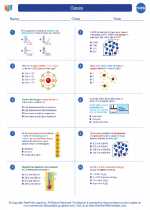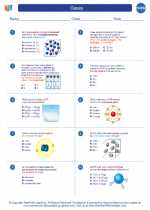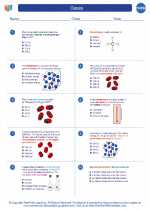Genomics
Genomics is a branch of molecular biology that focuses on the structure, function, evolution, mapping, and editing of genomes. It involves the study of an organism's complete set of DNA, including all of its genes and their interactions. Genomics allows scientists to understand the genetic basis of traits and diseases, and to develop new methods for diagnosis, treatment, and prevention.
Study Guide for Genomics
- Introduction to Genomics: Understand the basic concepts of genomics, including DNA structure, genes, chromosomes, and genetic variation.
- Genome Sequencing Techniques: Learn about the various methods used to sequence and analyze genomes, such as Sanger sequencing, next-generation sequencing, and genome editing tools like CRISPR/Cas9.
- Functional Genomics: Explore the study of gene function, regulation, and expression, as well as the role of non-coding DNA in gene regulation.
- Comparative Genomics: Understand how genomes of different organisms are compared to identify evolutionary relationships and genetic differences.
- Medical Genomics: Investigate how genomics is used in medicine, including genetic testing, personalized medicine, and the study of genetic diseases.
- Ethical and Social Issues: Consider the ethical, legal, and social implications of genomic research and its applications, including privacy, discrimination, and informed consent.
By studying these aspects of genomics, you will gain a comprehensive understanding of the field and its potential impact on biology, medicine, and society.
[Genomics] Related Worksheets and Study Guides:
.◂Chemistry Worksheets and Study Guides High School. Gases
The resources above cover the following skills:
Physical Science
Energy - A. Energy is involved in all physical and chemical processes. It is conserved, and can be transformed from one form to another and into work. At the atomic and nuclear levels energy is not continuous but exists in discrete amounts. Energy and mass are related through Einstein's equation E=mc 2 . B. The properties of atomic nuclei are responsible for energy-related phenomena such as radioactivity, fission and fusion. C. Changes in entropy and energy that accompany chemical reactions influence reaction paths. Chemical reactions result in the release or absorption of energy. D. The theory of electromagnetism explains that electricity and magnetism are closely related. Electric charges are the source of electric fields. Moving charges generate magnetic fields. E. Waves are the propagation of a disturbance. They transport energy and momentum but do not transport matter.
Relate temperature to the average molecular kinetic energy.



